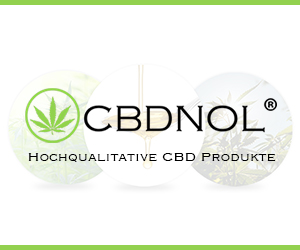Hemp Seed Oil Magic for the Skin Benefits
Hemp seed oil is extracted, as its name suggests, from hemp seeds. The process is done through cold-pressing.
Hemp seed oil is full of three polyunsaturated fatty acids: linoleic acid, alpha-linolenic acid, and gamma-linoleic acid. This makes it a super oil for skin-related issues and even to help lower blood pressure since these fatty acids help reduce hypertension. It also lowers cholesterol levels in the human system, which leads to lower risks of strokes and heart disease.
Are Their Benefits Real?
They do. These tiny brown seeds are full of nutrients and rich in protein, fiber, healthy fatty acids, and antioxidant effects.
One of their most important characteristics is that they are a powerful source of protein; more than 25% of their total calories are quality protein. Such proteins have a high level of arginine and a sulfur-rich protein fraction, two features that provide unique nutritional values.
They are a great source of minerals such as phosphorus, potassium, magnesium, sodium calcium, iron, and zinc.
Hemp seeds’ protein factor is so undeniable that, by weight, they provide similar amounts of protein as beef and lamb. For example, 2 or 3 tablespoons of hemp seeds provide about 11 grams of protein. This is an uncommonly high protein level for plant-based food and an excellent option for both non-meat and meat-eaters. Such levels are only paired with quinoa, which is considered a superfood.
Another notorious benefit of hemp seed is that, as hemp seed oil, they can help improve skin disorders.
Some studies have found that the immune system depends on the balance of omega-6 and omega-3 fatty acids. These acids may affect the immune responses we have in our bodies.
Hemp seeds are a prime source of essential fatty acids with an approximate 3:1 ratio of omega-6 to omega-3. Experts agree that this 3:1 fatty acid ratio is ideal for health in humans. It can also help reduce symptoms of immune-related skin diseases such as eczema, lupus-related rashes, and psoriasis.
Hemp seeds, as hemp seed oil, can help to lower the risk of heart disease. Being the number one cause of death worldwide, this is not a minor benefit.
Eating the seeds, cooked or raw, can help reduce the risk of such disease since their percentage of fatty acids and arginine, the amino acid that produces nitric oxide. This gas molecule allows your blood vessels to dilate and, therefore, to relax, reducing the possibility of high blood pressure and, therefore, of heart disease.
As mentioned before, hemp seeds, when consumed regularly, provide a large amount of gamma linoleic acid that helps to reduce inflammatory processes in the whole human body. These properties make hemp seeds an excellent option for people who suffer from chronic inflammatory diseases and heart disease-related conditions.
They are, as well, brain food. By this we mean that hemp seeds contain many brain-friendly antioxidants, omega fats, vitamin E, and a unique fiber called resistant starch, which is also prebiotic.
They are packed with brain nutrition because they are mainly composed of protein and good fats, which contribute to brain development and neurotransmitter function, and battle mental health issues like depression and anxiety.
As if it wasn’t enough, hemp seeds can better your digestion. Whole hemp seeds have a 20% of soluble fiber and an 80% of insoluble fiber. This means that they help your gut, digestive bacteria, and general digestive system perform better. Soluble fiber is an essential source of digestive bacteria, which reduces cholesterol levels. Insoluble fiber helps food and waste pass through your gut, which is vital for the whole digestive process as it helps avoid illnesses such as constipation, colic, and colitis.
It is important to note that fiber-related properties can only be gained by eating whole hemp seeds since unshelled ones have very little to no fiber left.
Finally, an important benefit for women related to hemp seeds is that, because of its high levels of gamma-linoleic acid and other essential fatty acids, they help reduce PMS and Menopause symptoms.
PMS symptoms, according to several studies, are caused by sensitivity in the prolactin hormone. Essential fatty acids help reduce prolactin’s effects. On the other hand, Gamma linoleic acid is known to help to regulate Menopause’s hormonal imbalances and inflammation.






No comments